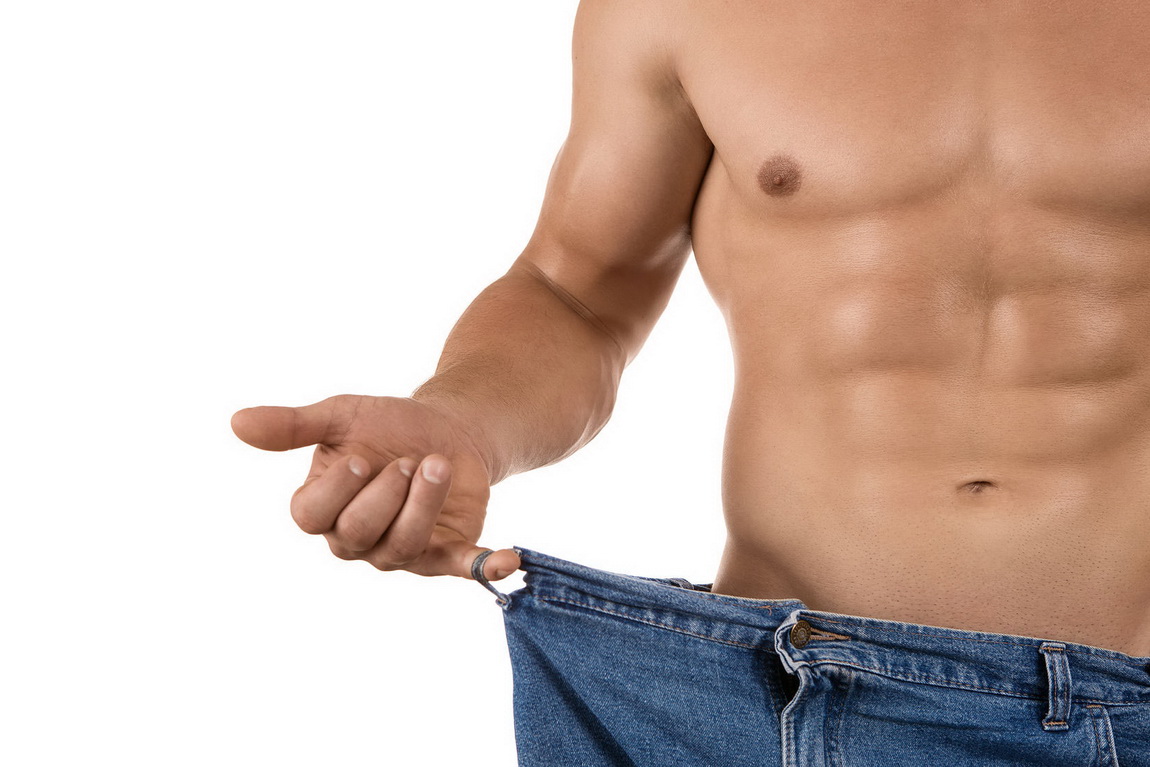You cannot lose weight effectively by starving yourself. A diet tailored to your daily activity level, age, food intolerance and personal preferences can help you control your weight, lose extra pounds and feel stronger and more alert. A common and effective diet is to eat small portions 4-5 times a day. This way you won't get so hungry that you overeat at lunch or dinner and you can easily control your calorie intake.

Fast weight loss for men at home
Weight control is stereotypically seen as a woman's prerogative, but the stronger sex struggles no less with the problem of extra pounds. Men and men in their prime think about their health, adhere to the recognized criteria of beauty and decide to lose weight. Classic diets and methods of losing weight are not suitable for them - males and females have different hormonal composition, different fat-to-muscle ratio, different energy consumption and other peculiarities of fat storage. Find out how men can lose weight quickly and what you should and should not do.
The metabolism of the stronger sex 'works' fast, which is why society has created many rigid stereotypes: that it is enough for men to go without ordinary foods for a few days to lose weight, that they need a hearty and rich meal every day, that dietary restrictions harmful, etc. As a result, they overeat and their stomachs expand, requiring another, similarly sized portion of food. Like their ancient ancestors, modern humans tend to 'eat while there is food', and established traditions support them in this unhealthy habit.
This is a dangerous misconception: men have to fight their excess weight in order to keep it. Otherwise, there is a high risk of stroke, early heart attack and serious health problems. Another major cause of weight gain is a sedentary lifestyle. The stronger sex need plenty of physical activity and regular exercise - this is due to an ancient 'genetic program' designed for hard work. Without these measures, body weight increases rapidly and the proportion of internal fat tissue increases.

In addition to lack of physical activity and heavy eating habits, weight loss is also hampered:
- Sleep disorders: a healthy adult needs at least 7-8 hours of sleep at night, a violation of this condition leads to an increased need for glucose - the brain needs caloric food to maintain tone, appetite is stimulated, it is more difficult to control oneself ;
- Staring at the TV or the computer and systematically snacking on ready meals – unlike women, men have less control over what they want to eat and, absorbed in a TV show or an online game, do not think about how many calories they eat have eaten at a certain point in time;
- Addiction to 'liquid calories' - strong alcohol, beer, sweetened fizzy drinks, coffee and tea with sugar, which are poorly dosed and also increase appetite;
- Smoking and other unhealthy habits that prevent weight loss.
establishing a diet
It is a widely held belief that the stronger sex does not need dieting and exercise is enough. Research from the University of Portland has proven this to be a fallacy. Without a proper and sensible meal plan, all your efforts in the gym will be in vain and the results will be short-lived. Eating habits are difficult to change, so giving up unhealthy foods should be done gradually. The first step is to create a meal plan.
Men generally need more calories per day than women - up to 3000-3500 kcal with regular exercise. Reducing the energy value of the diet will help with rapid weight loss, but like the fairer sex, one should never go below the critical threshold of 1000-1500 kcal. This is associated with metabolic disorders and frustration, the body resists weight loss and builds up reserves to prepare for 'tough times'. During rapid calorie restriction, the body does not use energy but converts it into visceral fat.

Due to the peculiarities of the hormonal background and biochemical balance, in the diet of the stronger sex, emphasis is placed on a number of micronutrients. Zinc and magnesium improve the production of testosterone and other 'male' hormones. They support cardiovascular function (and heart disease tops the list of causes of early death). Also required:

- protein – for rapid muscle growth;
- Dietary fiber from fresh fruits and vegetables – cleanse the intestines, optimize metabolism and speed up metabolism;
- Water – you should drink 2-2.5 liters per day, not counting tea, coffee and alcohol;
- vitamins A, B, C, E;
- Calcium – the stronger sex' bones should be strengthened to prevent fractures.
- back of the foot.
- muscle work while running.
- Long legs, small body.
- Short legs and long torso in women.
- Shin extensor muscles (tibialis extensor muscles).
- muscles in the legs.
- cruciate ligament of the foot latin.
- Muscles congest when running.
